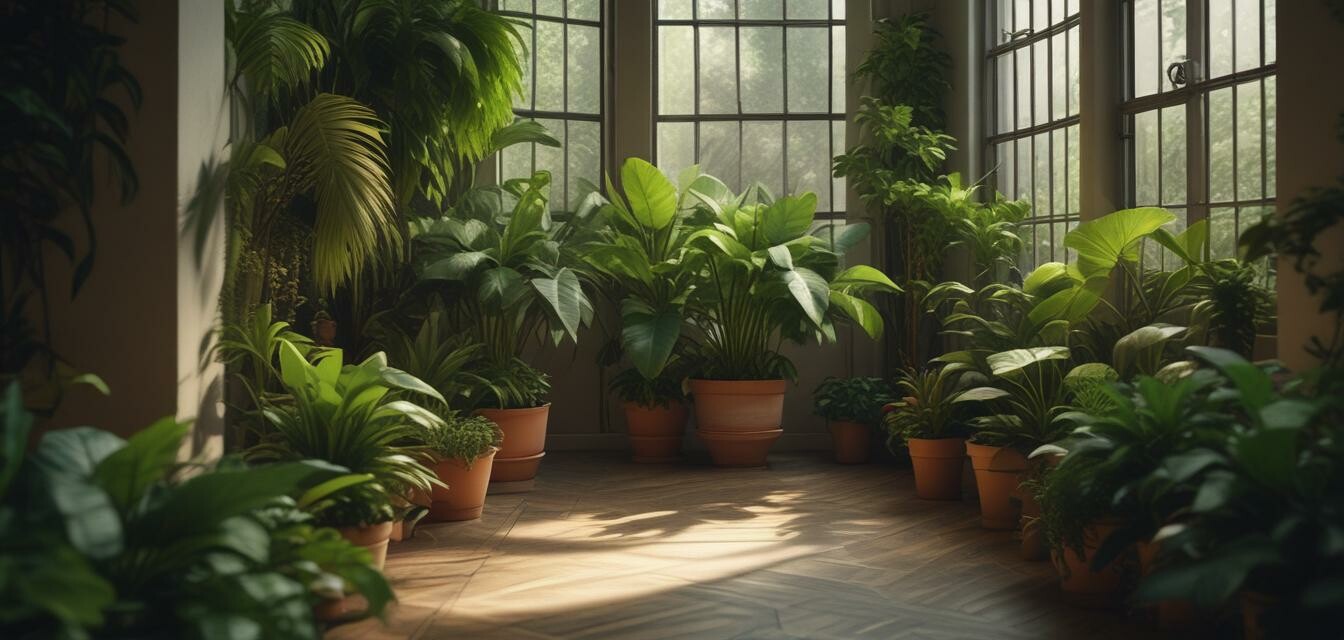
How to Clean and Maintain Houseplant Leaves
Key Takeaways
- Keeping leaves clean promotes better photosynthesis.
- Regular maintenance helps prevent pest infestations.
- Different plants have unique cleaning requirements.
- Use natural solutions to avoid damaging leaves.
Caring for houseplants goes beyond watering and ensuring adequate light; one of the vital aspects is maintaining clean leaves. Dust and dirt buildup can hinder photo-synthesis, impacting the health and vitality of your plants. This guide will provide practical tips on how to clean and maintain houseplant leaves, ensuring they thrive in your indoor garden.
Why Clean Houseplant Leaves?
Cleaning houseplant leaves is essential for several reasons:
- Improves photosynthesis: Clean leaves can absorb sunlight more efficiently.
- Resists pests: Dust can attract pests; clean leaves deter infestations.
- Enhances aesthetics: Clean plants look better and more inviting in your home.
Signs that Your Houseplants Need Cleaning
Being proactive about cleaning your houseplant leaves can prevent problems. Here are some signs that your plants might need a cleaning:
- Visible dust or dirt on the leaves
- Reduced growth or yellowing leaves
- Presence of pests such as spider mites or aphids
How to Clean Houseplant Leaves
Follow these simple steps for effectively cleaning your houseplant leaves:
| Method | Materials Needed | Steps |
|---|---|---|
| Dusting | Soft cloth or microfiber cloth | Gently wipe the leaves, starting from the base to the tip. |
| Shower Method | Water | Take the plant outside or in the bathtub and shower the leaves gently to remove dust. |
| Soapy Water Wash | Mild dish soap, water, soft cloth | Dilute soap in water, wipe leaves, and rinse well with clean water. |
| Leaf Shine (Optional) | Commercial leaf shine product | Use as directed to enhance shine but avoid overuse. |
Best Practices for Leaf Maintenance
In addition to cleaning, the following practices will help maintain healthy leaves:
- Regular checks: Inspect for pests or signs of distress regularly to catch problems early.
- Humidity levels: Ensure your indoor humidity is adequate, especially for tropical plants.
- Proper lighting: Ensure plants receive the appropriate amount of light; this can impact leaf health.
Natural Cleaning Solutions
If you're looking for eco-friendly options, consider using natural cleaning solutions:
- Vinegar and water: A mixture of one part vinegar with three parts water can effectively clean leaves.
- Olive oil: A small amount applied to a cloth can give leaves a natural shine.
Special Considerations for Different Plant Types
Different houseplants have unique needs when it comes to leaf cleaning. Here are a few categories:
| Plant Type | Cleaning Method | Frequency |
|---|---|---|
| Succulents | Dusting with a soft cloth | Every 3-4 weeks |
| Ferns | Shower method | Every 2 weeks |
| Large-leaf tropical plants (like Monsteras) | Soapy water wash | Once a month |
| Flowering plants | Gentle wiping | Every 2-3 weeks |
Common Mistakes to Avoid
While it’s important to clean leaves, several common mistakes can hinder your efforts:
- Using harsh chemicals: Avoid products not designed for houseplants as they can harm the foliage.
- Over-watering: Ensure your plant isn’t over-watered after cleaning to prevent root rot.
- Ignoring plant signs: Pay attention to your plant’s responses after cleaning, as they may indicate stress.
When to Seek Professional Help
If despite your cleaning efforts, leaves continue to appear unhealthy, it might be time to consult a professional. Sudden changes in your plant's health could indicate underlying issues like disease or severe pest infestations requiring expert intervention.
For more tips on nurturing houseplants, check out our Care Tips section, which is packed with resources to help you keep your plant companions healthy.
Conclusion
Cleaning and maintaining houseplant leaves is a simple yet essential task that can make a significant difference in their health. By following the methods and practices outlined in this guide, you ensure that your plants not only look beautiful but also thrive in their environment. For more insights on caring for your indoor garden, consider exploring our Buying Guides and News and Trends sections. Happy gardening!
Pros
- Enhanced photosynthesis for healthier plants.
- Proactive pest management.
- Improved aesthetics and plant vitality.
Cons
- Requires regular maintenance effort.
- Risk of damaging delicate leaves if not careful.
- Potential for water stress if overdone.

